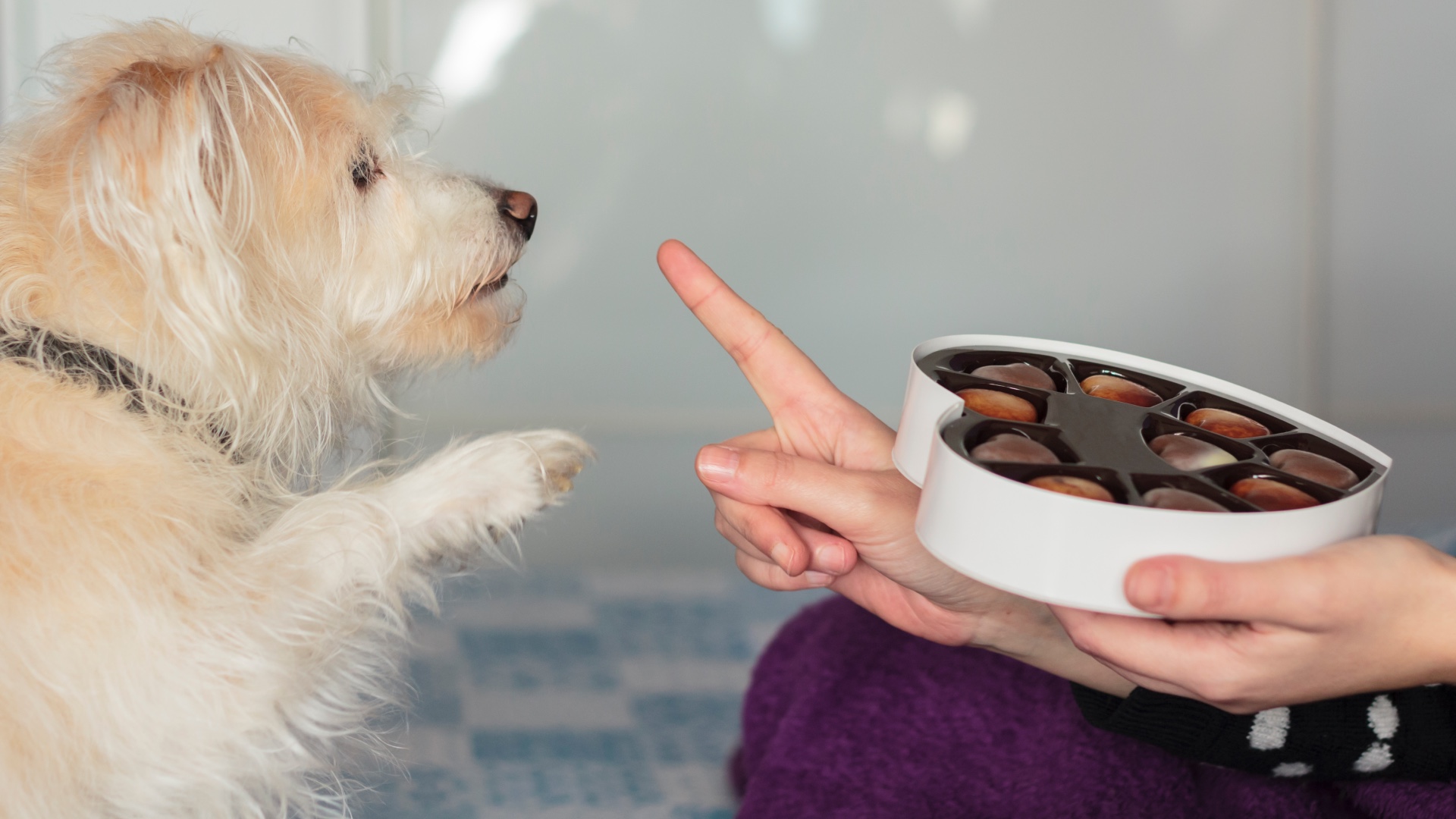Trainer reveals four things you must tell your vet if your dog eats chocolate this holiday season
If your pup gets their paws on some chocolate, here’s what to tell the vet

Get the best advice, tips and top tech for your beloved Pets
You are now subscribed
Your newsletter sign-up was successful
Unless specifically stated, any expert comments quoted in this news piece have been taken directly from the Instagram post cited below.
It’s common knowledge that certain foodstuffs are dangerous for dogs, with chocolate being one of the key culprits. But while you wouldn’t willingly share a chocolate bar with your pup, of course, sometimes accidents can happen.
This is particularly true this time of year as people begin to stock up on sweet treats for Christmas. If you’ve got a busy house full of friends and relatives, and you’ve got the chocolates out, it can only take a second for your dog to shun even the best dog treats and help themselves to human treats instead.
It’s not been long since Halloween, either, so if you’ve got any leftover chocolate (though if you’re anything like us, it’ll be long gone) it’s worth bearing in mind, too.
Chocolate can be fatal for dogs, but here’s what you should know if your dog eats some – as award-winning trainer and owner of Dogs That, Susan Garrett has explained in an Instagram post.
A post shared by Susan Garrett (@susangarrettdogsthat)
A photo posted by on
First off, while most of us are aware that chocolate is bad for dogs, how many of us actually know why? Garrett explains that chocolate contains theobromine, which dogs can’t process effectively – and the darker the chocolate, the more theobromine it contains, so the more dangerous it is, causing chocolate poisoning in dogs.
And sometimes, chocolate will contain xylitol. This is a sugar substitute that’s often used in things like mints, gum, and baked goods. It’s incredibly toxic for dogs, so if your dog consumes anything with xylitol in – chocolate or not – you should take them to the vet straight away.
If your dog does manage to eat chocolate, you should call your vet. But before you do so, there are four questions to consider – make sure you’ve got the answers, and this will show you the information you need to give to the vet.
Get the best advice, tips and top tech for your beloved Pets
How long ago did your dog eat chocolate? And, how much chocolate did they eat? These questions will help your vet determine the best plan of action. After all, if your dog’s eaten a lot of chocolate in the last hour, it may well be more of an emergency than your dog eating one chocolate chip a few hours ago.
Likewise, you should also tell your vet the type of chocolate your dog ate – if it was dark chocolate, it’s going to be more dangerous than milk chocolate due to the levels of theobromine. And finally, tell your vet how much your dog weighs. In general, smaller, less heavy dogs will be affected more by chocolate than larger dogs.
Of course, prevention is better than cure, and ideally our beloved pups would never get their paws on chocolate. But accidents can happen, particularly when we’re busy, stressed, and distracted, so knowing what to do in case of emergency is important.
For more expert advice, check out our vet's guide to what human food can dogs eat.

Adam is a freelance journalist specialising in pets, music and culture, and mental health and wellbeing. He investigates and writes the large majority of news on PetsRadar, and collaborates with veterinary experts to produce informative pet care content.
Adam has a journalism degree from Southampton Solent University and a masters degree in Magazine Journalism from Cardiff University. He was previously senior editor at dog advice website DogTime.com, and has also written for The Independent, GoodToKnow and Healthline.
He owns two rescue cats, Bunny and Dougie, and has also previously had a rabbit, fish and Roborovski dwarf hamsters.
